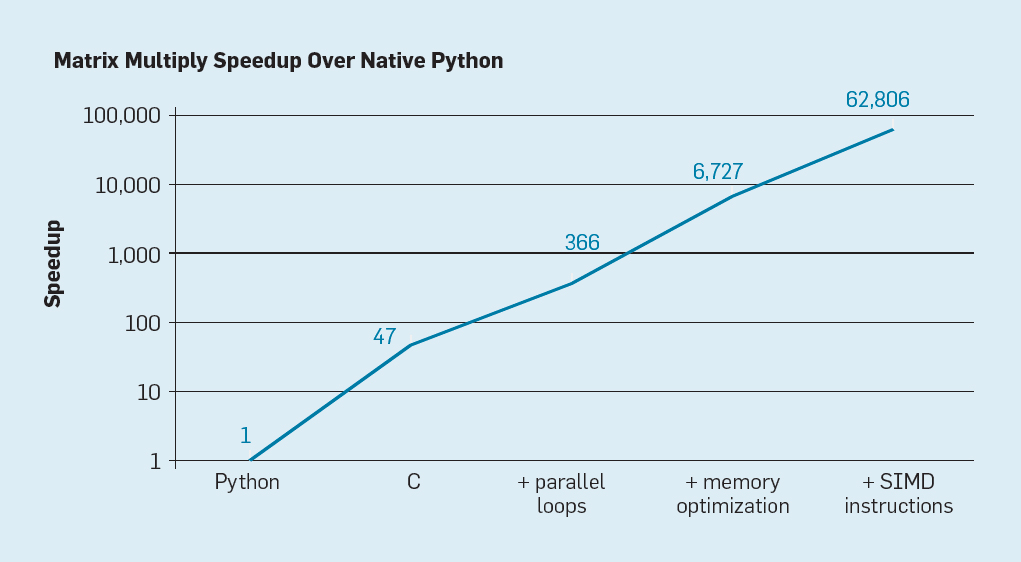Lecture 02: Multithreading in Java
COSC 272: Parallel and Distributed Computing
Spring 2023
Outline
- What is multithreading?
- Writing multithreaded programs in Java
- Activity: Counter Example
- RAM and PRAM
Last Time: Motivation

Today
Writing multithreaded programs!
What is Multithreading?
Preliminary question. What is a program?
- A sequence of operations to be performed
-
some operations may depend out the outcomes of other operations, others may be independent:
a1 = b1 + c1; a2 = b2 - c2; p = a1 * a2
A thread is a sequence of operations—think subprogram
- different threads specify logically independent sequences operations
Art of Multithreading
Goal. Partition a program into multiple (logically indpendent) threads.
Payoff. Different threads can be executed in parallel (on parallel computer architecture)
- computer with $k$ cores could see up to a $k$-fold increase in throughput!
Challenges.
- How to partition a program into threads?
- How to synchronize resources that must be shared by threads? (e.g., memory)
- How to ensure program always gives desired output?
- OS ultimately decides how to allocate resources…
Multithreading in Java
Steps to writing a multithreaded program
- Define a
Runnableobject- class implements the
Runnableinterface - must implement a method
void run() -
run()defines what your thread should do
- class implements the
- Create a
Threadinstance initialized with an instance of yourRunnableobject - Start the thread
- (optional) Wait for the thread to complete
Example
A thread that increments a counter a bunch of times.
Step 1: Define Runnable Object
public class CounterThread implements Runnable {
private Counter counter; private long times;
public CounterThread (Counter counter, long times) {
this.counter = counter; this.times = times;
}
public void run () {
for (long i = 0; i < times; i++) {
counter.increment();
}
}
}
What about the Counter?
public class Counter {
private long count = 0;
// return the current counter value
public long getCount () { return count; }
// increment the counter
public void increment () { ++count; }
// reset the counter value to 0
public void reset () { count = 0; }
}
Next Steps
Step 2. Create a Thread instance initialized with an instance of your Runnable object
Step 3. Start the thread
Step 4. (optional) Wait for the thread to complete
- See
CounterExample.java
Activity (Small Groups)
- Run
CounterExamplewithNUM_THREADSset to 1. What happens? - Run
CounterExamplewithNUM_THREADSset to 2.- How does the final count change?
- How does the running time change?
- Repeat 2 for
NUM_THREADSset to 4, 8, 16, 1000, 1000…
What Happened?
-
What happened with final counts as number of threads increased?
-
What happend with running times?
Question
Why did this behavior occur?
Understanding What Happened
Computer Architecture, Oversimplified
von Neuman Architechture
Computer has two main components
- Central Processing Unit (CPU)
- Memory Unit
CPU Capabilities:
- perform fixed set of operations (e.g., arithmetic)
- program control (e.g., branching)
Memory stores:
- program instructions
- data
CPU/Memory Interactions
Random Access Machine (RAM) model interactions:
-
read a value from memory address
- load value into CPU register
-
write a value to memory address
- copy value stored in CPU register
Counter Example, 1 thread
-
Counterobject is stored in memory-
Counterstores a valuecount
-
-
CountThreadinstructions stored in memory -
When
CounterThreadis executed, it follows these instructionsfor (long i = 0; i < times; i++) { counter.increment(); } -
In turn:
public void increment () { ++count; }
Question
What are CPU/Memory interactions when counter.increment() is executed?
public void increment () { ++count; }
Multicore Architecture
Modern computers:
- multiple cores
- think of them as separate, independent CPUs
- different cores can execute different threads simultaneously
- shared memory
Multicore Counter Example
- two threads perform
incrementoperation on different cores - threads both try to
incrementsameCounterconcurrently
Question
Suppose: count = 7 & two threads both call increment() concurrently
What are the possible outcomes? What are results of different read/write operations?
PRAM model
Parallel Random Access Machine (PRAM)
- Abstract model for parallel computing
- Shared memory: cells w/ addresses
- think one giant array
- Multiple processors access memory
- basic operations are
read(i)andwrite(i, val)
- basic operations are
PRAM Assumptions
-
read/writeoperations are atomic
Nondeterminism:
-
if multiple threads access same memory location simultaneously all “consistent” outcomes are possible
-
two processes call
write(i, a)andwrite(i, b) -
one process calls
read(i)anotherwrite(i, a)
-
Next Time
Consider: How could we avoid the CounterExample weirdness (nondeterminacy) and get a correct count with multiple threads?
More on nondeterminacy!